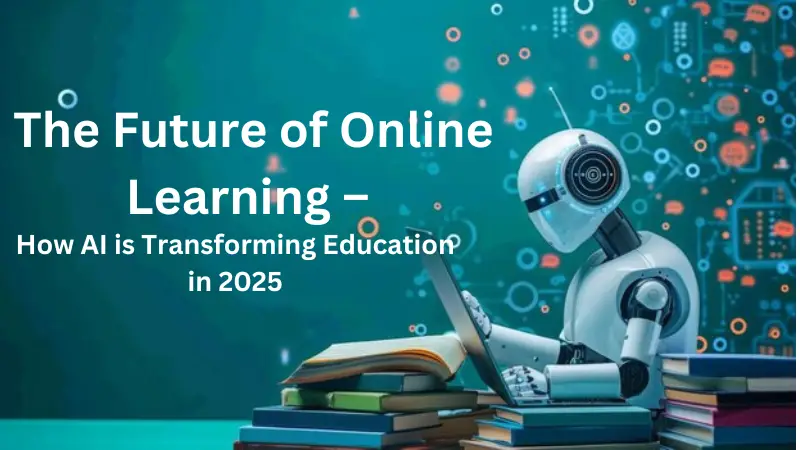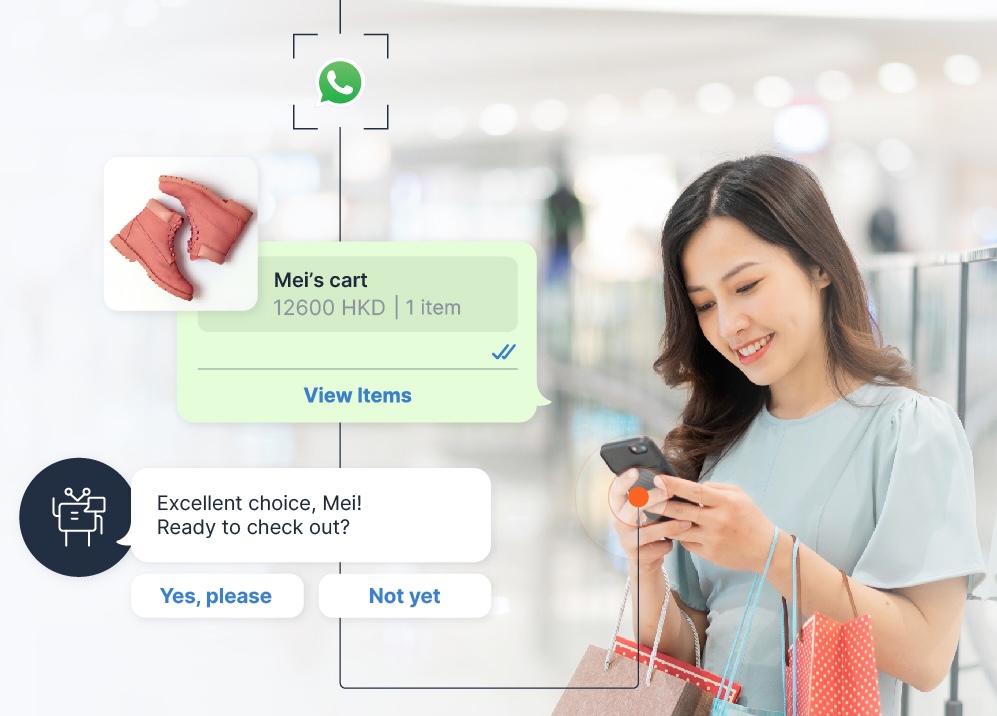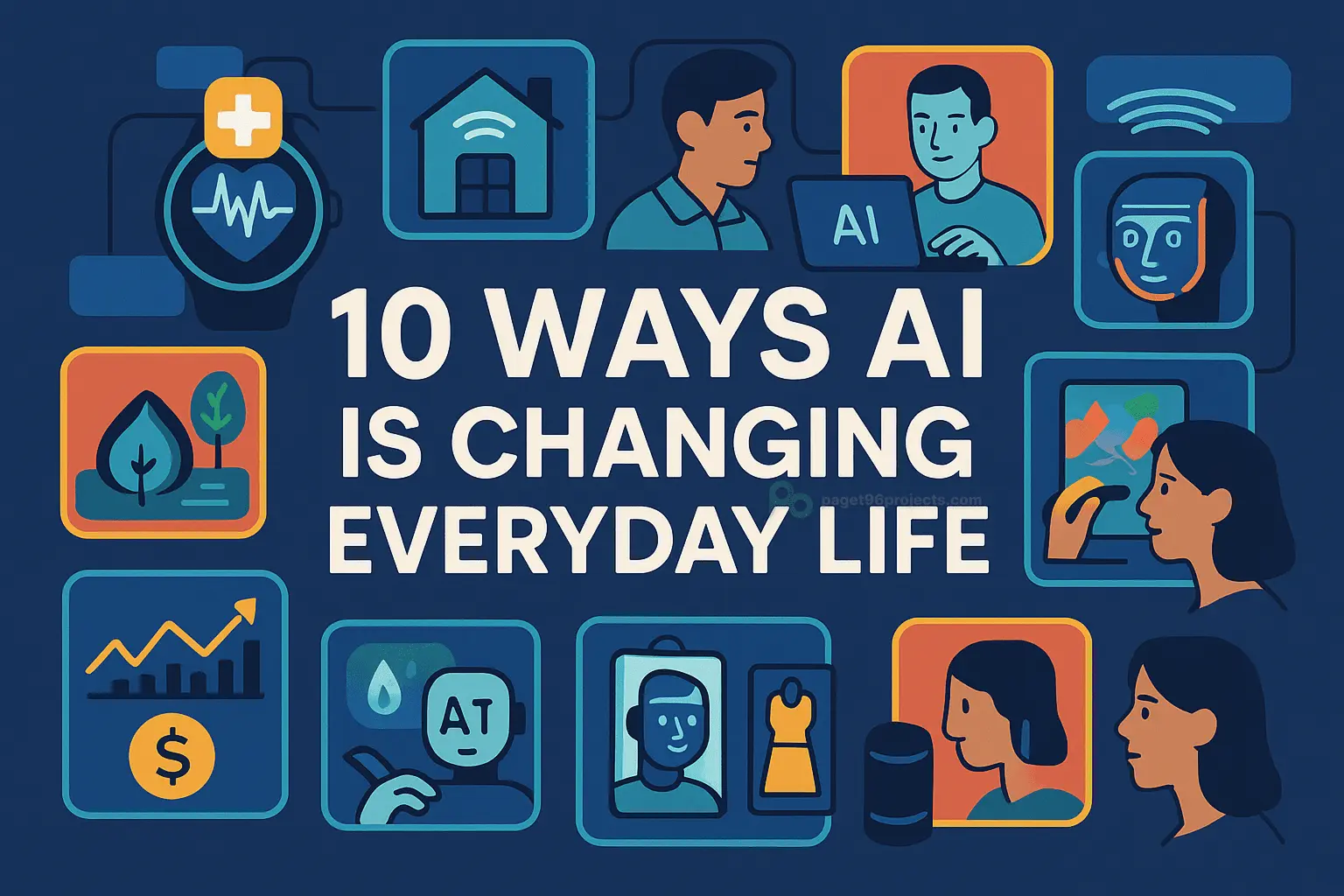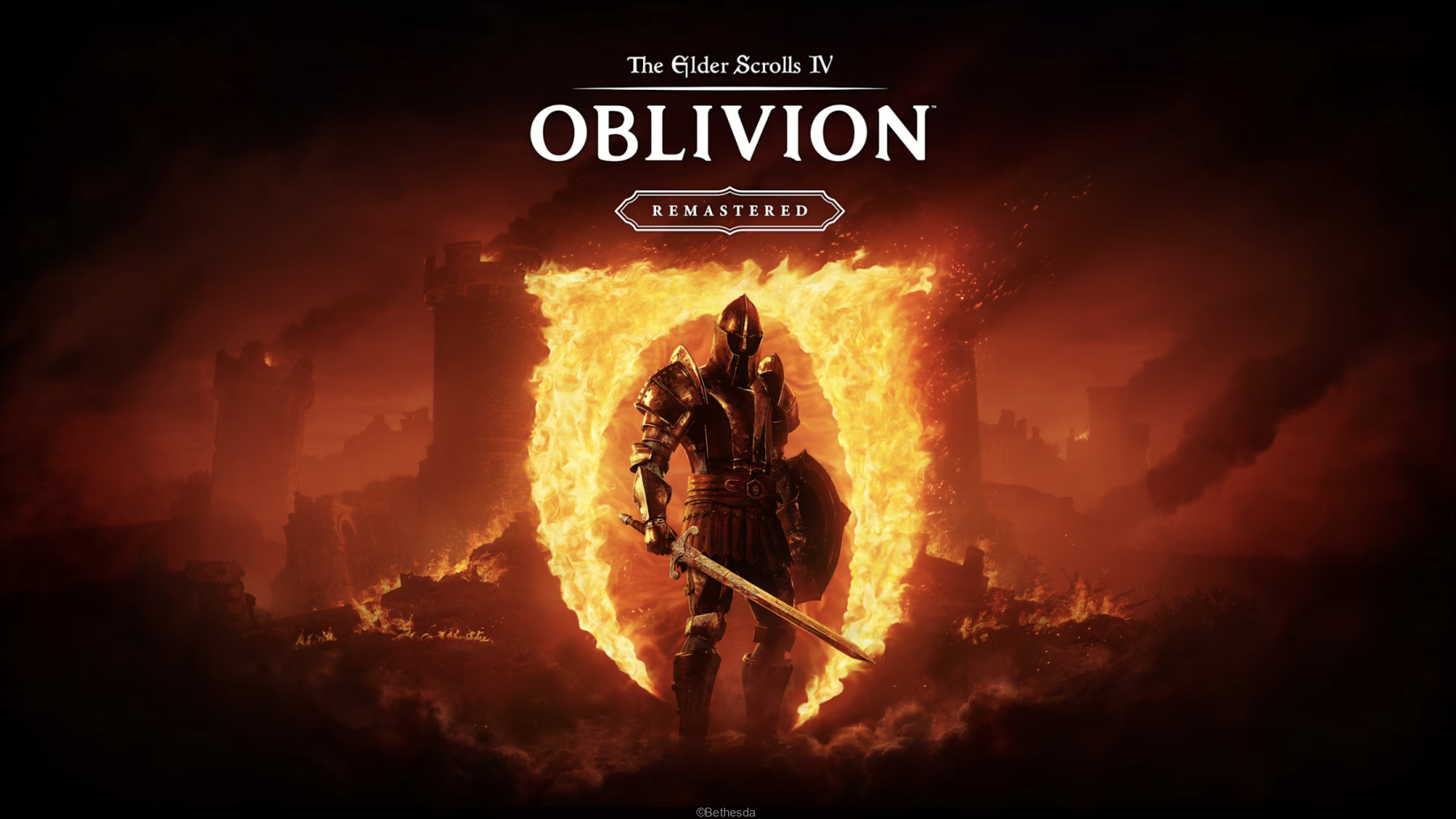AI In the fast-paced world of 2025, artificial intelligence (AI) has seamlessly integrated into our everyday routines, often in ways we least expect. From waking up in the morning to winding down at night, AI is reshaping how we live, work, and interact. This article explores 10 surprising ways AI is transforming daily life, highlighting its impact on personal health, education, work, transportation, and more. As AI trends in 2025 continue to evolve, understanding these changes can help you stay ahead in an increasingly digital world.
AI’s role in daily life isn’t just about futuristic robots; it’s about practical, behind-the-scenes enhancements that make tasks easier and more efficient. According to recent reports, AI adoption has surged, with over 35% of people using AI tools daily, up from previous years. This growth is driven by advancements in machine learning, natural language processing, and generative AI, which are now embedded in apps, devices, and services we use every day.
For those new to AI, check out our guide to AI basics for a deeper dive. Externally, resources like the Stanford AI Index Report provide comprehensive insights into these trends.

1. Personalized Health Monitoring: AI as Your 24/7 Doctor
One of the most surprising ways AI is changing daily life in 2025 is through personalized health monitoring. Gone are the days of annual check-ups; AI-powered wearables and apps now track your vital signs in real-time, predicting issues before they arise.
AI Imagine your smartwatch detecting irregular heart rhythms or sleep apnea patterns overnight. In 2025, AI algorithms analyze data from devices like the Apple Watch or Fitbit, using machine learning to spot anomalies. For instance, AI can identify early signs of atrial fibrillation, potentially preventing strokes. This isn’t science fiction—it’s happening now, with AI reducing healthcare costs by enabling proactive care.
AI’s impact extends to mental health too. Apps like Calm use AI to customize meditation sessions based on your stress levels, measured via voice analysis or heart rate variability. In a study from the World Economic Forum, AI is transforming global health by detecting diseases pre-symptomatically.
Benefits include improved accuracy in diagnostics, with AI outperforming humans in some areas like image analysis for cancer detection. However, challenges like data privacy loom large—ensure your devices comply with regulations like HIPAA.
AI For daily integration, pair your wearable with apps that sync data to your phone. If you’re interested in AI’s role in fitness, read our article on AI fitness trackers. Externally, explore Harvard’s insights on AI in medicine.
AI This transformation means healthier lifestyles without constant doctor visits, saving time and money. As AI evolves, expect even more personalized nutrition plans based on your DNA and daily habits.
2. Smart Home Automation: AI Making Houses Think
AI’s infiltration into smart homes is another surprising shift in 2025, turning ordinary houses into intuitive living spaces. Devices like Google Nest or Amazon Echo use AI to anticipate your needs, adjusting lighting, temperature, and security automatically.
For example, AI learns your routine: dimming lights at bedtime or pre-heating the oven when you head home from work. This goes beyond convenience—AI optimizes energy use, reducing bills by up to 20% through predictive algorithms.
Surprisingly, AI enhances security too. Cameras with facial recognition alert you to unfamiliar faces, while voice assistants integrate with health monitors to detect falls in elderly homes.
Challenges include interoperability between devices and potential hacking risks. To mitigate, use secure networks and update firmware regularly.
Integrate by starting with a central hub. For more on smart tech, see our smart home guide. Check external sources like Microsoft’s AI trends.
AI In 2025, smart homes aren’t luxury—they’re standard, making daily life more efficient and eco-friendly.
3. Enhanced Education: AI as a Personal Tutor
Education in 2025 is revolutionized by AI, offering personalized learning experiences that adapt to individual paces. Platforms like Duolingo or Khan Academy use AI to tailor lessons, identifying weaknesses and suggesting targeted exercises.
Surprisingly, AI generates custom curricula, such as explaining complex math via interactive simulations. For adults, AI-powered tools like Coursera recommend courses based on career goals and past performance.

In classrooms, AI assists teachers by grading essays and providing real-time feedback, freeing them for one-on-one interactions.
AI Benefits: Increased accessibility for remote learners and better retention rates. Drawbacks: Over-reliance might hinder critical thinking; balance with human oversight.
AI Start with free apps. Link to our AI in education piece. Externally, University of Cincinnati’s benefits.
AI makes learning lifelong and engaging.
4. Revolutionized Transportation: AI Driving the Future
Transportation sees AI optimizing commutes in surprising ways. Ride-sharing apps like Uber use AI for dynamic routing, reducing wait times and emissions.
Public transit employs AI for predictive maintenance, preventing breakdowns. Autonomous vehicles, though not ubiquitous, assist in traffic management.
Surprisingly, AI personalizes travel: suggesting eco-friendly routes based on your preferences.
Challenges: Ethical dilemmas in decision-making for self-driving cars. Safety standards are evolving.
Use apps like Google Maps. : AI transport trends.links: Urban Institute’s report.
AI makes travel safer and greener.
5. Personalized Shopping: AI Knows What You Want
AI Shopping in 2025 is hyper-personalized, with AI recommending products based on browsing history and even mood analysis from social media.
Virtual try-ons via AR, powered by AI, let you see clothes on your avatar. AI Amazon’s algorithms predict needs, auto-reordering essentials.
Surprising: AI combats fraud in real-time, enhancing security.
Pros: Time-saving; cons: Privacy invasion—opt for transparent platforms.
Shop smarter with AI tools. Link: E-commerce AI. links: Forbes on generative AI.

6. AI in Entertainment: Custom Content Creation
In 2025, artificial intelligence (AI) has transformed entertainment into a deeply personalized and creative experience, reshaping how we consume music, movies, games, and even literature. AI’s ability to analyze vast amounts of user data and generate tailored content is not just enhancing our daily leisure but also redefining creativity itself. From curating playlists that perfectly match your mood to co-authoring novels or designing immersive video game worlds, AI is becoming a creative partner in ways that were unimaginable a few years ago. This section explores how AI-driven custom content creation is revolutionizing entertainment, its surprising applications, benefits, challenges, and practical ways to integrate it into your daily life.
How AI Personalizes Entertainment
AI’s role in entertainment hinges on its ability to understand individual preferences through data analysis. Platforms like Spotify and Netflix have long used AI to recommend songs or shows based on your listening and viewing history. In 2025, this personalization has reached new heights. For instance, Spotify’s AI algorithms now analyze not just your past choices but also real-time data like your location, time of day, and even biometric feedback from wearables to curate playlists that align with your emotional state. Imagine heading home after a stressful day, and your smart speaker automatically plays a calming playlist tailored to your elevated heart rate, detected via your smartwatch.
Similarly, streaming services like Netflix and Disney+ use advanced machine learning to suggest content with uncanny precision. These platforms go beyond genre preferences, factoring in subtle patterns like your tendency to watch thrillers on weekends or pause during emotional scenes. In 2025, AI can even generate personalized trailers, stitching together scenes that highlight elements you’re most likely to enjoy based on your viewing habits. This hyper-personalization ensures you’re not just watching content—you’re experiencing a version of it crafted just for you.
For more on how AI tailors experiences, check out our guide to AI personalization. Externally, Forbes’ insights on generative AI highlight its growing role in entertainment.
AI as a Creative Collaborator
One of the most surprising developments in 2025 is AI’s role as a co-creator in entertainment. Tools like Midjourney, DALL-E, and Runway allow users to generate high-quality images, videos, or animations from simple text prompts. For example, an aspiring artist can input “a futuristic cityscape at sunset with flying cars” into Midjourney, and within seconds, receive a stunning visual ready for use in a film, game, or social media post. These tools democratize creativity, enabling anyone to produce professional-grade content without years of training.
In music, AI platforms like AIVA and Amper Music compose original tracks tailored to specific genres or moods. Musicians can collaborate with AI to create background scores for indie films or even personalized theme songs for events. For instance, you could request a pop anthem for your birthday party, and AI would generate a track incorporating your favorite artists’ styles. This is particularly impactful for content creators on platforms like TikTok, where AI-generated music enhances short-form videos, driving engagement.
Surprisingly, AI is also making waves in literature. Tools like Sudowrite and Jasper assist writers by suggesting plot twists, generating dialogue, or even co-authoring entire chapters. In 2025, self-published authors use AI to craft novels tailored to niche audiences, analyzing market trends to ensure their stories resonate. For example, an AI might suggest adding a romantic subplot to a sci-fi novel based on reader preferences in that genre.
Gaming is another frontier. AI-driven procedural generation creates dynamic game worlds that adapt to player choices. Games like No Man’s Sky have used this for years, but in 2025, AI takes it further by designing unique characters, quests, or even dialogue in real-time, ensuring no two playthroughs are identical. This creates immersive experiences that feel bespoke, enhancing replayability.
To explore AI’s creative potential, visit our AI creativity hub. For external insights, check Vocal Media’s take on AI’s creative uses.
Benefits of AI in Entertainment
The advantages of AI-driven content creation are manifold:
- Personalization: AI delivers content that feels made for you, increasing satisfaction and engagement. Studies show personalized recommendations boost user retention by up to 25%.
- Accessibility: AI lowers barriers to entry, allowing non-professionals to create high-quality content. This empowers small creators to compete with major studios.
- Efficiency: AI automates time-consuming tasks like editing or composing, freeing creators to focus on storytelling. For example, AI video editing tools can cut a 10-minute vlog in seconds.
- Innovation: AI introduces novel ideas, such as generating surreal art styles or blending genres in ways humans might not consider.
Challenges and Ethical Considerations
Despite its promise, AI in entertainment raises challenges:
- Authenticity: Some argue AI-generated content lacks the human touch, potentially diluting emotional depth. For instance, an AI-written song might feel formulaic compared to one born from personal experience.
- Copyright Issues: Who owns AI-generated content? Legal frameworks are still catching up, creating disputes over intellectual property.
- Job Displacement: While AI empowers creators, it may reduce demand for traditional roles like graphic designers or session musicians.
- Bias in Content: AI trained on biased datasets might perpetuate stereotypes in generated content, such as favoring certain demographics in character designs.
To navigate these, use AI as a tool rather than a replacement for human creativity. Ensure platforms you use are transparent about data sourcing to avoid bias.
Practical Integration into Daily Life
Incorporating AI-driven entertainment into your routine is simple and rewarding:
- Explore Music and Video Platforms: Use Spotify or YouTube’s AI recommendations to discover new content. Enable features like Spotify’s “Daylist” for mood-based playlists.
- Experiment with Creative Tools: Try Midjourney or Canva’s AI features to create visuals for personal projects, like designing a custom poster for your home.
- Engage with AI Games: Play games with adaptive AI, such as those on Steam, to experience dynamic storytelling.
- Write with AI: Use tools like Grammarly or Sudowrite to enhance personal blogs or creative writing, available via our writing tools guide.
- Stay Informed: Follow AI entertainment trends to discover new apps. External resources like Menlo Ventures’ 2025 consumer AI report offer valuable updates.
Real-World Examples in 2025
- Social Media: TikTok creators use AI tools like CapCut to generate viral videos with auto-edited effects, increasing engagement by 30%.
- Film Industry: Indie filmmakers leverage AI to create low-budget special effects, competing with big studios. Tools like Runway generate CGI scenes in minutes.
- Podcasting: AI platforms like Descript transcribe and edit audio, allowing hobbyists to produce professional podcasts from home.
- Virtual Events: AI designs immersive virtual concerts, where fans interact with AI-generated avatars of artists, enhancing remote experiences.
Future Outlook
Looking ahead, AI in entertainment will become even more interactive. Expect virtual reality (VR) experiences where AI crafts real-time narratives based on your reactions, or AI-driven fan fiction platforms that generate stories starring your favorite characters. As generative AI advances, the line between human and machine creativity will blur, making entertainment more inclusive and dynamic.
AI For further reading, explore our AI trends for 2025. Externally, MIT Technology Review’s AI future provides a forward-looking perspective.
Explore AI art apps. links: AI creativity. Vocal Media’s ways.
7. Productivity at Work: AI as Your Assistant
AI Work in 2025 features AI automating mundane tasks, like summarizing emails or generating reports. Tools like Microsoft Copilot enhance efficiency.
Surprising: AI fosters collaboration across time zones via real-time translation.
Pros: 38% cost savings; cons: Job displacement—upskill accordingly.
Use productivity apps. Link: Work AI tools. McKinsey trends.
8. Mental Health Support: AI Therapists on Demand
AI provides accessible mental health support, with chatbots like Woebot offering therapy sessions.
Surprisingly, AI analyzes speech for depression indicators.
Benefits: 24/7 availability; challenges: Not a human replacement.
Start with apps.Links: Mental health AI. Pew Research on AI views.
9. Environmental Sustainability: AI for a Greener Planet
AI optimizes resource use, predicting weather for farming or managing energy grids.
Surprising: AI tracks wildlife via drones, aiding conservation.
Pros: Reduced waste; cons: High energy consumption of AI itself.
Adopt eco-apps. Link: AI environment. IBM trends.
10. Social Interactions: AI Enhancing Connections
AI mediates social life, suggesting friends or moderating conversations in apps.
Surprisingly, AI generates empathetic responses in chatbots for lonely users.
Benefits: Broader networks; challenges: Authenticity loss.
Use mindfully. Links: AI social. Menlo Ventures report.
As we navigate 2025, these 10 surprising ways AI is changing daily life underscore its transformative power. From health to social bonds, AI enhances efficiency while posing ethical questions. Stay informed and adapt—AI isn’t replacing us; it’s augmenting our potential.
For more, explore our AI hub. Externally, MIT’s future of AI.




